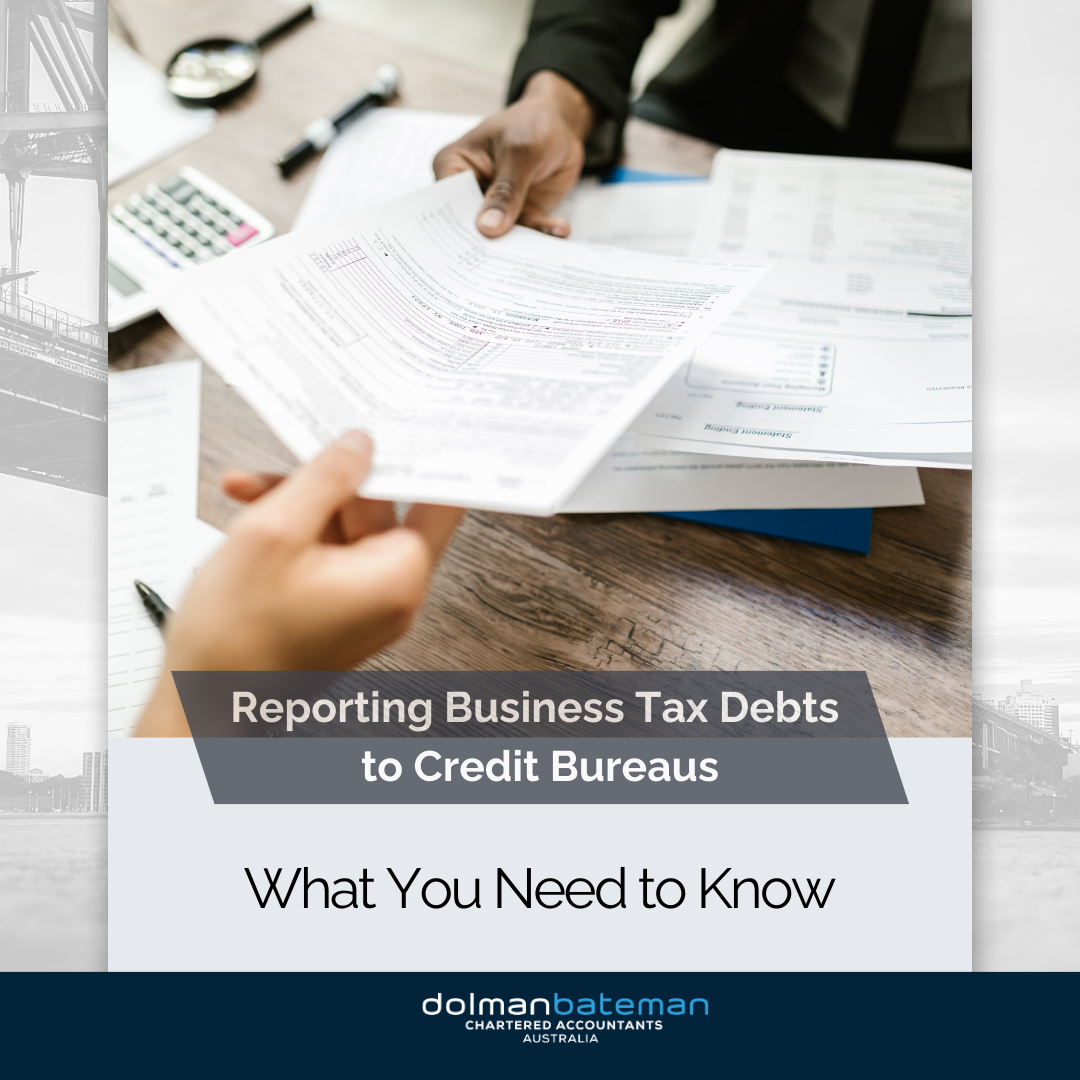Reporting Business Tax Debts to Credit Bureaus: What You Need to Know
- Arnold Shields

- Jun 28, 2024
- 3 min read
Updated: May 12, 2025

What Happens When the ATO Reports Your Business Tax Debt to Credit Bureaus?
If you're running a business in Australia, managing your cash flow and tax obligations is critical. One major consequence of falling behind on tax debt is that the Australian Taxation Office (ATO) can report your debt to credit bureaus, seriously damaging your credit score and future borrowing ability.
Here’s what you need to know.
ATO’s Reporting Process
The ATO is increasingly using credit reporting to encourage businesses to meet their tax obligations. If a business fails to pay its tax debts and does not engage with the ATO, the ATO may notify credit reporting agencies such as Equifax, Illion, or Experian.
How It Works
Warning Notice: The ATO must first notify the business in writing of its intent to report the tax debt.
Response Period: You’ll typically have 28 days to respond or enter into a payment arrangement.
Reporting: If no action is taken, the ATO proceeds to report the overdue amount.
Criteria for Reporting
Not all unpaid tax debts are reported. Your business must meet the following criteria:
Debt threshold: Total tax debt of at least $100,000
Overdue timeframe: Debt is more than 90 days overdue
Business status: Must hold an active ABN
Lack of engagement: You have not effectively engaged with the ATO to manage the debt
Impact of Being Reported
Being reported has serious implications for your business:
Credit Rating
Your business credit score can drop significantly, affecting your credibility with banks and lenders.
Financing Challenges
With a poor credit rating, it becomes harder to secure funding, loans, or even business credit cards.
Supplier Terms
Suppliers may reduce credit terms or refuse to extend credit altogether, affecting inventory, operations, and cash flow.
How to Prevent ATO Reporting
The good news? You can avoid this entirely with a proactive approach.
1. Pay On Time
Ensure BAS, PAYG, and income tax obligations are paid by their due dates.
2. Communicate Early
If you’re struggling to meet a payment, contact the ATO immediately. Don’t wait for them to contact you.
3. Enter a Payment Plan
A formal ATO payment plan stops the reporting process and allows you to manage your debt over time.
4. Get Expert Help
An accountant or tax advisor can help you stay compliant and structure payment solutions that work for your situation.
What To Do If You’ve Been Reported
If your tax debt has already been reported:
Contact the ATO Immediately
You may still be able to negotiate a payment arrangement and request removal of the report once payments commence.
Monitor Your Credit Report
Regularly review your credit file to ensure the information reported is accurate and up to date.
Consider Credit Repair Support
Engage a professional to help address and rectify credit damage where possible.
Final Thoughts
Being reported to credit agencies by the ATO can have long-term consequences. But with the right steps, it’s preventable, and reversible in some cases. Timely communication, active engagement, and professional advice are your best defences.
If you're worried about your tax debt or need help negotiating with the ATO, contact Dolman Bateman on (02) 9411 5422. We’re here to help you take control of your financial future and protect your business’s reputation.
Disclaimer:
The information provided in this article is general in nature and does not constitute personal financial, legal or tax advice. While every effort has been made to ensure the accuracy of this content at the time of publication, tax laws and regulations may change, and individual circumstances vary. Dolman Bateman accepts no responsibility or liability for any loss or damage incurred as a result of acting on or relying upon any of the information contained herein. You should seek professional advice tailored to your specific situation before making any financial or tax decision.



